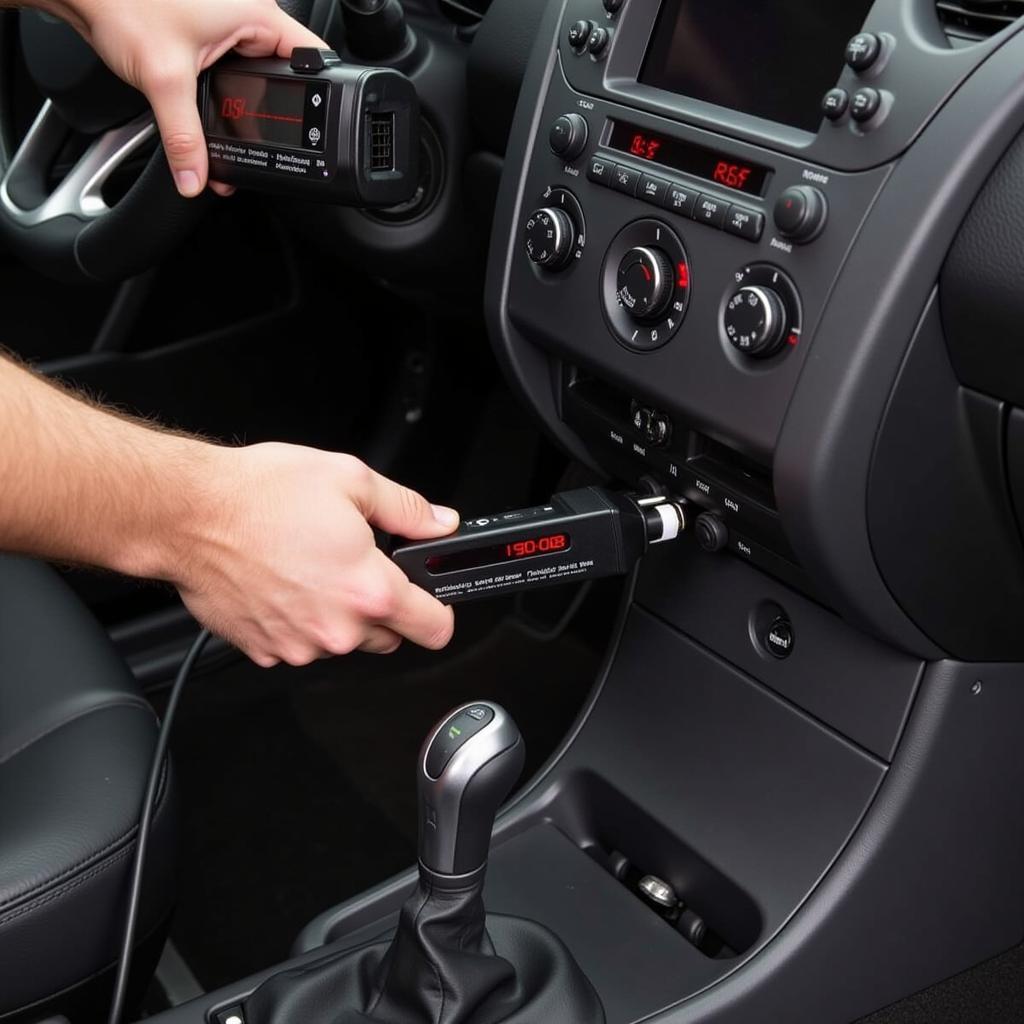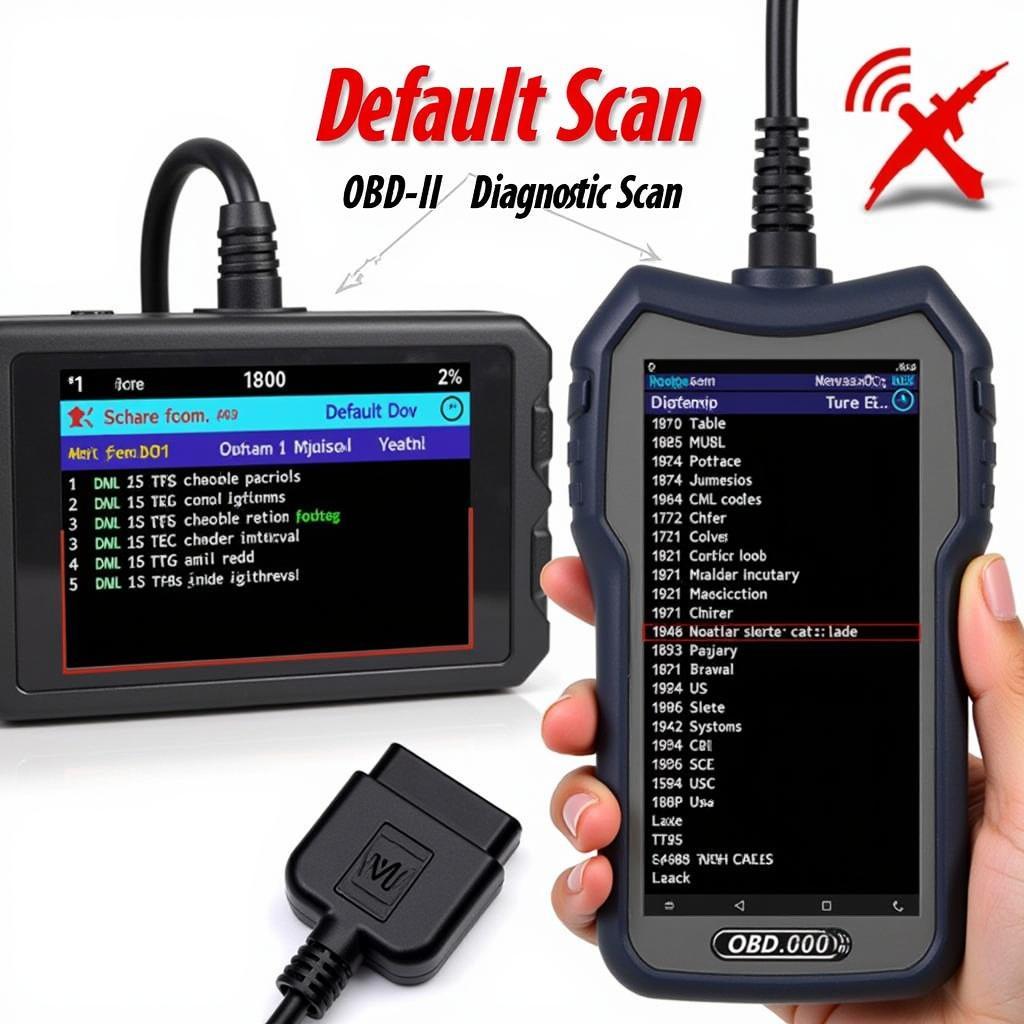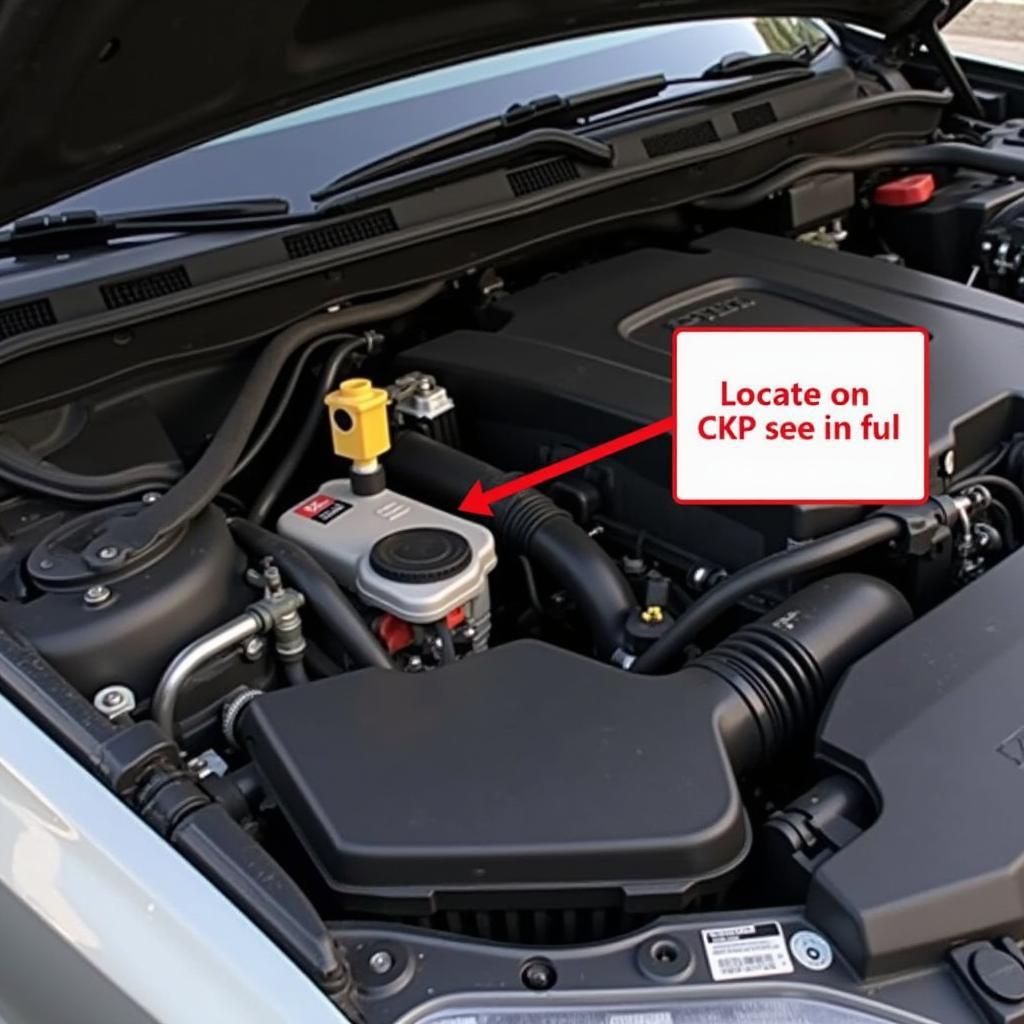Finding the Best Automotive Scan Tools can feel overwhelming with so many options available. Whether you’re a professional mechanic, a body shop owner, or a DIY enthusiast, the right scan tool is crucial for diagnosing and fixing car problems efficiently. This guide will explore everything you need to know about choosing and using these essential diagnostic tools.
What are Automotive Scan Tools and Why are They Important?
Automotive scan tools are electronic devices that connect to a vehicle’s onboard computer, the OBD-II (On-Board Diagnostics II) port, to retrieve diagnostic trouble codes (DTCs), real-time data, and other crucial information. These tools empower users to identify the root cause of vehicle issues, from engine misfires to transmission problems and airbag system malfunctions. They are indispensable for any modern vehicle owner or repair professional.
Types of Automotive Scan Tools
The market offers a range of scan tools, each with varying capabilities and price points. Understanding the different types is essential for selecting the best tool for your needs.
Basic Code Readers
These entry-level tools are ideal for DIYers and car enthusiasts. They can read and clear basic DTCs but offer limited functionality beyond this. They’re a great starting point for basic troubleshooting.
OBD-II Scan Tools
OBD-II scan tools provide more advanced features, including access to real-time data streams, freeze frame data, and some bi-directional control capabilities. These are suitable for both DIYers and professionals who require more in-depth diagnostic information.
Professional Scan Tools
Professional scan tools are designed for experienced technicians and body shops. They provide extensive diagnostic capabilities, including advanced coding, programming, and system tests. These tools offer comprehensive coverage for various vehicle makes and models. These tools often allow for tasks like key programming and module resets. Similar to the best automotive scan tool for body shops, professional scan tools are essential for advanced diagnostics and repairs.
How to Choose the Best Automotive Scan Tool
Selecting the right scan tool depends on several factors, including your budget, diagnostic needs, and technical expertise. Consider the following:
- Vehicle Coverage: Ensure the scan tool supports the makes and models you’ll be working with.
- Features: Determine the necessary features, such as live data streaming, bi-directional control, and special functions.
- User Interface: Choose a scan tool with an intuitive and easy-to-navigate interface.
- Updates: Ensure the scan tool offers regular software updates to stay current with the latest vehicle technologies. Are you looking for the best scan tools 2021? Make sure it’s compatible with current vehicles.
Using Automotive Scan Tools Effectively
Once you’ve chosen the appropriate scan tool, understanding how to use it effectively is vital. Here’s a basic guide:
- Locate the OBD-II port, usually under the dashboard.
- Connect the scan tool to the port.
- Turn on the vehicle’s ignition.
- Follow the scan tool’s prompts to read and interpret the DTCs.
“A good scan tool is like having an X-ray vision into a car’s systems,” says Alex Thompson, a seasoned automotive technician with 20 years of experience. “It saves valuable time and allows for accurate diagnoses.”
What if My Scan Tool Isn’t Working?
If you are having trouble with your scan tool, consider checking these issues:
- Connection: Ensure the scan tool is securely connected to the OBD-II port.
- Power: Verify the scan tool is receiving power.
- Compatibility: Confirm the scan tool is compatible with the vehicle.
- Updates: Check for any available software updates for the scan tool. Tools like the best wifi scanning tools often require regular updates for optimal performance.
“Always double-check the basics,” advises Maria Sanchez, an electrical engineer specializing in automotive diagnostics. “A loose connection or outdated software can often be the culprit.”
Conclusion
Investing in the best automotive scan tools is essential for anyone involved in vehicle maintenance and repair. By understanding the different types, features, and how to use them effectively, you can significantly enhance your diagnostic capabilities. For personalized advice and assistance in choosing the right scan tool, reach out to ScanToolUS at +1 (641) 206-8880 or visit our office at 1615 S Laramie Ave, Cicero, IL 60804, USA.
Would you like to learn more about specific types of scan tools? For information on vulnerability scanning, check out our article on the best vulnerability scan tools. For those interested in web application security, the guide on best web application scanning tools may prove insightful.



